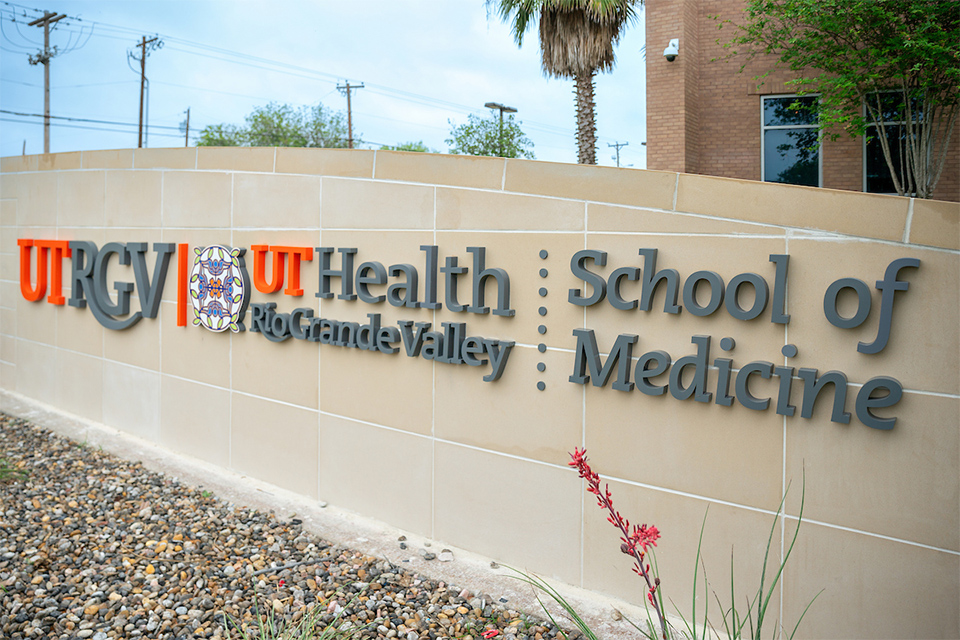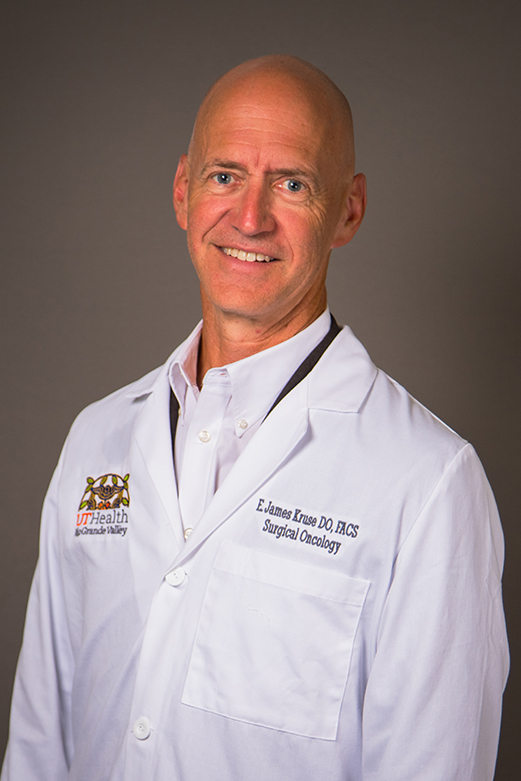By Heriberto Perez–Zuñiga
RIO GRANDE VALLEY, TEXAS – MARCH. 11, 2025 – Colorectal cancer is the third most diagnosed cancer in Texas and the U.S. for both men and women. According to the Texas Department of State Health Services, an estimated 12,763 Texans were diagnosed with colorectal cancer last year, with 4,588 lives lost to the disease.
Dr. Edward Kruse, a surgical oncologist at UT Health RGV, emphasizes that early detection is crucial in the fight against colorectal cancer, as many cases are diagnosed at a late stage, making treatment more challenging.
“Colorectal cancer is a ‘screening amenable’ disease, meaning we have the tools to catch it early or even prevent it through routine screenings,” Kruse said. “The problem is that too many people delay screening until the disease has progressed to a more difficult stage to treat.”
UNDERSTANDING THE RISKS
Colorectal cancer develops in the colon or rectum, often starting as small, benign polyps (small clumps of cells) that can become cancerous over time. If left untreated, the disease can spread, making treatment more challenging.
“More than half of all colorectal cancers are caused by modifiable risk factors,” Kruse said. “That means many cases could be prevented through lifestyle changes and routine screenings.”
While the Rio Grande Valley has relatively low colorectal cancer rates, the incidence has been steadily rising among Texas Hispanics since 2011, according to the Journal of Clinical Gastroenterology. Contributing factors include high rates of obesity, diabetes and physical inactivity in the region.
Regular screenings can detect abnormal cells before they become cancerous, but many people hesitate to undergo colonoscopies, Kruse noted. Fortunately, there are alternatives.
“A colonoscopy is the gold standard, but there are stool-based tests that are almost as effective,” he said. “Finding colon cancer at the earlier stages makes treatment easier and progress more likely.”
The American Cancer Society recommends colorectal cancer screenings begin at age 45, with selective screening for those 76-85 based on individual health and provider consultation.
CARE CLOSE TO HOME
Valley residents will soon have access to a state-of-the-art facility for cancer care without needing to travel long distances. The UT Health RGV Cancer and Surgery Center, slated to open in 2025, will provide comprehensive cancer care, including advanced screenings, treatments and specialized surgical services.
For those diagnosed with colorectal cancer, treatment may involve surgery, chemotherapy and sometimes radiation. Early-stage cancers may only require minimally invasive laparoscopic surgery, allowing for quicker recovery.
“Chemotherapy options are evolving at an amazing pace, offering better outcomes with fewer side effects,” Kruse said. “But the best approach is always prevention.”
Lifestyle choices significantly impact the risk of colorectal cancer. A healthy diet, regular exercise and avoiding smoking can lower the chances of developing the disease.
Kruse encourages Valley residents to prioritize their health and screening.
“We have the knowledge and the tools to fight colorectal cancer,” he said. “Getting screened can save your life.”
For more information on cancer care services, please visit UTHealthRGV.org.
ABOUT UTRGV
The University of Texas Rio Grande Valley (UTRGV) was created by the Texas Legislature in 2013 as the first major public university of the 21st century in Texas. This transformative initiative provided the opportunity to expand educational opportunities in the Rio Grande Valley, including a new School of Medicine and a School of Podiatry, and made it possible for residents of the region to benefit from the Permanent University Fund – a public endowment contributing support to the University of Texas System and other institutions.
UTRGV has campuses and off-campus research and teaching sites throughout the Rio Grande Valley including Brownsville (formerly The University of Texas at Brownsville campus), Edinburg (formerly The University of Texas-Pan American campus), Harlingen, Weslaco, McAllen, Port Isabel, Rio Grande City and South Padre Island. UTRGV, a comprehensive academic institution, enrolled its first class in the fall of 2015; the School of Medicine welcomed its first class in the summer of 2016, and the School of Podiatric Medicine in the fall of 2022.


